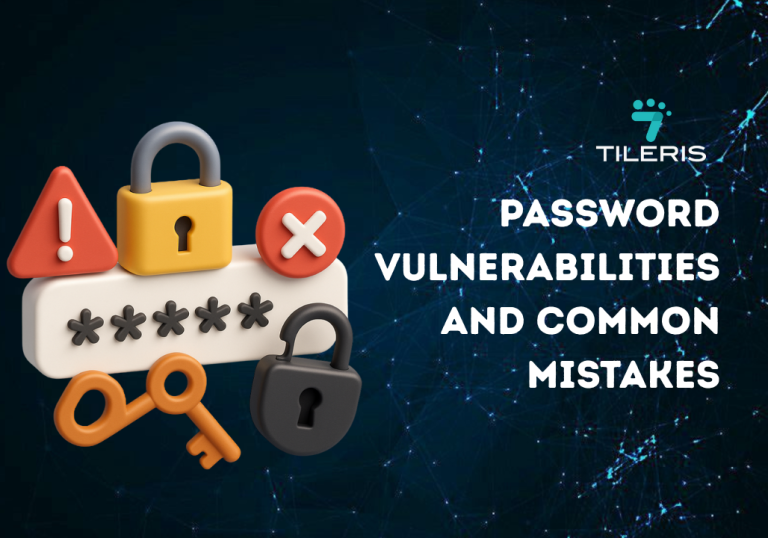Different areas of Cybersecurity – Which One is Right For You?
Introduction
If you’re thinking of building a career in cybersecurity, you’ve probably already discovered just how many paths are out there. From protecting corporate networks to securing cloud environments, cybersecurity specializations are as varied as they are vital. And that’s the exciting part, it’s not a one-size-fits-all field.
Perhaps you’ve felt the growing call of this exciting field, or maybe you’re already in tech and looking to pivot. The sheer breadth of cybersecurity specializations can feel a bit overwhelming, like standing at the crossroads of a bustling metropolis with countless paths stretching before you. How do you decide which one to embark on?
Well, let’s take a stroll through some of these fascinating avenues, and together, we’ll try to find the path that truly resonates with you.
The Expanding Need for Cybersecurity Specializations
Before we dive into the specifics, it’s worth pausing to appreciate the immense demand for cybersecurity specializations right now. It’s not just a trend; it’s a fundamental shift in how businesses and governments operate.
In fact, cybersecurity specializations have exploded in recent years, not just in scope but in necessity. According to Cybersecurity Ventures, global cybersecurity job vacancies grew by 350 percent, from one million openings in 2013 to 3.5 million in 2021. The number of unfilled jobs leveled off in 2022, and remains at 3.5 million in 2023, with more than 750,000 of those positions in the U.S. Companies are no longer just looking for “cybersecurity experts”, they’re looking for specific talents in specialized areas.
This isn’t just about large corporations; small businesses, healthcare providers, financial institutions, everyone needs robust digital defenses.
The World Economic Forum’s Future of Jobs Report 2025 highlights Information Security Analysts as among the top 15 fastest-growing professions globally through 2030, with network and cybersecurity skills projected to be the second fastest-growing skill category worldwide.
This isn’t just about filling traditional roles; it’s about a broader integration of security expertise into every facet of an organization. The need for diverse cybersecurity specializations is undeniable.
So, how do you find your niche in this booming industry? It starts with a bit of introspection. What truly excites you? Are you a meticulous investigator, a creative problem-solver, a strategic planner, or someone who loves to build and break things ethically, of course? Let’s explore some of the most prominent cybersecurity specializations.
Delving into the Core Cybersecurity Specializations
Think of cybersecurity as a complex organism, with each specialized area representing a vital organ. They all work together, but each has a distinct function.
1. Network Security
If you’ve always been fascinated by how information flows, how data packets journey across the internet, and how to build impenetrable digital perimeters, then network security might just be your calling among the various cybersecurity specializations. This area is all about protecting the very arteries of our digital world, the networks.
Imagine a bustling city. Network security professionals are like the city planners and security guards, ensuring that traffic flows smoothly, that unauthorized individuals can’t just wander in, and that critical infrastructure remains protected. They work with firewalls, intrusion detection and prevention systems (IDS/IPS), and virtual private networks (VPNs) to create layered defenses.
They’re constantly analyzing network traffic, looking for anomalies that could signal a breach. It’s a dynamic role where vigilance is key. “There’s no silver bullet in cybersecurity; only layered defense works,” notes James Scott, a Senior Fellow at the Institute for Critical Infrastructure Technology, a philosophy deeply embedded in network security.
If the idea of architecting secure networks, or perhaps being the person who can spot a subtle shift in network behavior that indicates a threat, sparks your interest, then exploring cybersecurity specializations in network security could be incredibly rewarding. Salaries for Network Security Engineers often range from $90,000 to $130,000 in the U.S., reflecting the critical nature of this specialization.
2. Application Security
Now, let’s shift our gaze from the network to the very programs and applications we use every day. From mobile apps to complex enterprise software, each line of code, if not carefully crafted, can become a potential vulnerability. This is where application security, another crucial area of cybersecurity specializations, comes into play.
Think of an application security engineer as a quality control expert and a detective rolled into one. They ensure that applications are secure from the ground up, implementing secure coding practices, conducting vulnerability assessments, and performing penetration testing to find weaknesses before malicious actors do.
They’re often involved in the entire software development lifecycle, pushing for security to be a core consideration, not an afterthought. This integration of security from the start is often referred to as DevSecOps, a rapidly growing trend.
If you enjoy coding, have a meticulous eye for detail, and are driven by the challenge of finding flaws in complex systems, then application security could be a fantastic path.
The demand for Application Security Engineers is high, with average salaries typically ranging from $95,000 to $135,000 in the U.S. This is one of those cybersecurity specializations that truly merges development skills with security expertise.
3. Information Security & Data Privacy
At the heart of cybersecurity lies the protection of information itself. Information security (InfoSec) is a broad umbrella, but at its core, it’s about safeguarding data in all its forms, whether it’s sitting on a server, traveling across a network, or stored in the cloud. It’s built on the famous “CIA Triad”: Confidentiality, Integrity, and Availability.
Data Privacy, a closely related and increasingly critical area within cybersecurity specializations, focuses specifically on protecting personal and sensitive information in line with regulations like GDPR or HIPAA.
Those drawn to this area are often passionate about compliance, policy, and the ethical implications of data handling. They implement encryption, manage access controls, classify data based on sensitivity, and deploy data loss prevention (DLP) tools.
They’re the ones who ensure that data remains confidential (only authorized access), retains its integrity (accurate and unaltered), and is available when needed.
If you have a knack for understanding regulations, designing robust security policies, and are deeply concerned with privacy and ethical data practices, exploring path in information security and data privacy could be incredibly fulfilling. Data Privacy Officers (DPOs) can earn strong salaries, ranging from $115,000 to $160,000.
4. Cloud Security
With businesses migrating more and more of their operations to cloud platforms like AWS, Azure, and Google Cloud, cloud security has emerged as one of the most in-demand cybersecurity specializations. It’s not just about securing what’s in the cloud, but understanding the unique shared responsibility models and complexities that come with distributed cloud environments.
Cloud security professionals are trailblazers in a relatively new frontier. They work with cloud access security brokers (CASBs), manage identity and access within cloud environments (IAM), and ensure that cloud deployments adhere to security best practices and compliance standards. It’s a field that requires constant learning as cloud technologies evolve at a breakneck pace.
If you’re excited by cutting-edge technology, distributed systems, and the challenge of securing dynamic cloud infrastructures, then focusing on cybersecurity specializations in cloud security could be an excellent fit.
Cloud Security Engineers are highly sought after, with salaries often reaching between $120,000 and $160,000, and Cloud Security Architects earning even more.
5. Security Operations & Incident Response
This is where the rubber meets the road. When a cyberattack occurs, these are the folks on the front lines. Security Operations (SecOps) is about continuous monitoring, threat detection, and proactive hunting for malicious activity. Incident Response is about what happens after a breach, containing the damage, eradicating the threat, recovering systems, and learning from the incident.
Digital forensics, often intertwined here, is the art and science of investigating cybercrimes and collecting digital evidence.
Imagine a team of emergency responders and forensic scientists. They are constantly watching the digital landscape, ready to spring into action when an alert fires. They analyze logs, dissect malware, trace attack paths, and meticulously document everything to ensure future resilience and, if necessary, assist law enforcement.
If you thrive under pressure, possess strong analytical and problem-solving skills, and have a deep curiosity for how attacks unfold, then a career in security operations, incident response, or digital forensics might be perfect for you.
SOC Analysts typically earn between $70,000 and $90,000, while Incident Response Specialists and Digital Forensics experts often command higher salaries due to their specialized investigative skills.
6. Penetration Testing & Vulnerability Management
Do you ever wonder how secure a system really is? Do you enjoy thinking like a hacker, but for good? Then penetration testing (often called “ethical hacking”) and vulnerability management are fascinating areas within cybersecurity specializations.
Penetration testers are the “red team”, they simulate real-world attacks against an organization’s systems, networks, and applications to uncover weaknesses before malicious actors can exploit them.
They use a wide array of tools and techniques, from social engineering to exploiting software vulnerabilities.
Vulnerability management, on the other hand, is the ongoing process of identifying, assessing, and remediating security weaknesses across an organization’s digital assets. It’s a continuous cycle of scanning, patching, and improving. Hackers are creative. Defenders need to be more creative.
If you have a strong technical aptitude, a keen eye for detail, enjoy solving puzzles, and possess a “white hat” hacker mindset, then these cybersecurity specialization could be incredibly exciting. Penetration Testers can earn anywhere from $91,000 to $114,000, with lead roles commanding even more.
7. Policy Architects: Governance, Risk, and Compliance (GRC)
Not all cybersecurity roles are deeply technical. Some focus on the strategic, policy, and legal aspects of security. Governance, Risk, and Compliance (GRC) is one of the most critical, yet often overlooked, cybersecurity specializations.
GRC professionals are the architects of an organization’s security framework. They develop policies, assess risks, ensure compliance with laws and regulations (like ISO 27001, NIST, GDPR, HIPAA, PCI-DSS), and communicate security posture to leadership. They are crucial bridge-builders between technical teams and business stakeholders.
If you have a strong understanding of business operations, legal frameworks, excellent communication skills, and an analytical mind for risk assessment, then GRC could be a highly rewarding career path among the diverse cybersecurity specializations.
GRC specialists are in high demand, particularly in regulated industries like finance, with over 34,000 GRC job postings in 2023 alone. Salaries for Risk Analysts typically range from $80,000 to $115,000, with senior GRC roles significantly higher.
8. Security Awareness & Training
We often hear that the “human element” is the weakest link in cybersecurity. While perhaps a bit harsh, it underscores the importance of security awareness and training. This area of cybersecurity specializations focuses on educating employees and users about cyber threats and how to maintain good security hygiene.
These professionals are educators, communicators, and often, psychologists. They design training programs, conduct simulated phishing attacks, and create engaging content to foster a security-conscious culture within an organization.
If you have a passion for teaching, excellent communication skills, and a knack for making complex topics relatable, then security awareness and training could be a great fit. It’s a field where your impact can be felt across the entire organization, directly reducing the risk of social engineering attacks. It’s a foundational, yet often understated, aspect of successful cybersecurity specializations.
Which Cybersecurity Specialization is Right for YOU?
So, with all these incredible cybersecurity specializations laid out, how do you make the choice that feels right, that feels authentically you? It’s not about picking the one with the highest salary (though that’s certainly a nice bonus!), but about aligning your natural inclinations and strengths with the demands of the role.
- Are you a problem-solver who loves to dig deep? Perhaps incident response, digital forensics, or malware analysis is for you. These roles are about piecing together clues, understanding complex systems, and restoring order from chaos.
- Do you enjoy building and designing? Network security architect, cloud security engineer, or security architect roles might be your calling. You’ll be creating the very foundations of secure digital environments.
- Are you a strategic thinker, good with policies and frameworks? GRC could be your forte. You’ll be shaping the rules and ensuring the organization stays on the right side of regulations and risks.
- Do you thrive on finding weaknesses and thinking like an adversary? Penetration testing is where you can ethically flex those muscles and help organizations proactively strengthen their defenses.
- Are you passionate about educating and empowering others? Security awareness and training allows you to directly influence the human factor in cybersecurity, making a tangible difference.
- Are you fascinated by the latest threats and intelligence gathering? Threat intelligence could be your home, where you’re constantly analyzing the evolving landscape of cyber adversaries.
Consider your past experiences, even those outside of direct tech roles. Did you enjoy detective stories as a child? Maybe forensics is a fit. Are you naturally organized and meticulous? GRC might appeal. Did you love to tinker and understand how things work? Network or application security could be your path.
Cybersecurity is a field that encourages continuous learning and often allows for transitions between different areas as your interests evolve. Don’t feel locked into a single choice forever. Many professionals start in one area and gradually move into another, building a diverse skillset along the way.
Ultimately, the cybersecurity landscape is dynamic, challenging, and incredibly rewarding. The demand for skilled professionals across all cybersecurity specializations is not just high, but it’s growing at an exponential rate.
By understanding your own strengths and passions, and exploring the diverse avenues available, you can confidently choose a path that not only contributes to a safer digital world but also ignites your own professional journey. The right cybersecurity specialization is out there waiting for you to discover it.
Conclusion
Choosing among cybersecurity specializations isn’t just about matching your skills. It’s about aligning with your interests, your values, and the kind of impact you want to make.
Do you want to prevent attacks before they happen, or investigate them afterward? Do you prefer building defenses or educating people? Are you more comfortable with machines or with policies?
As cybersecurity continues to evolve, specialization becomes more than a choice, it becomes a necessity. But the beauty is, there’s room for every type of thinker, builder, communicator, and problem-solver.
Find Your Cybersecurity Specialization?
Download your free Cybersecurity Career Path Checklist today! It’s packed with practical tips, skill insights, and clear steps to help you navigate the world of cybersecurity specializations, perfect for beginners and career shifters alike.
Need help deciding where to start? Request a free consultation. Our team at Tileris is here to guide you, we’ll help you choose the right specialization for your goals.
Curious how AI is shaping cybersecurity careers? See Tileris AI Agents in action. Request a demo to explore how intelligent automation is transforming cybersecurity workflows, and how it might shape the next step in your journey. Just drop us a note through our contact form.






